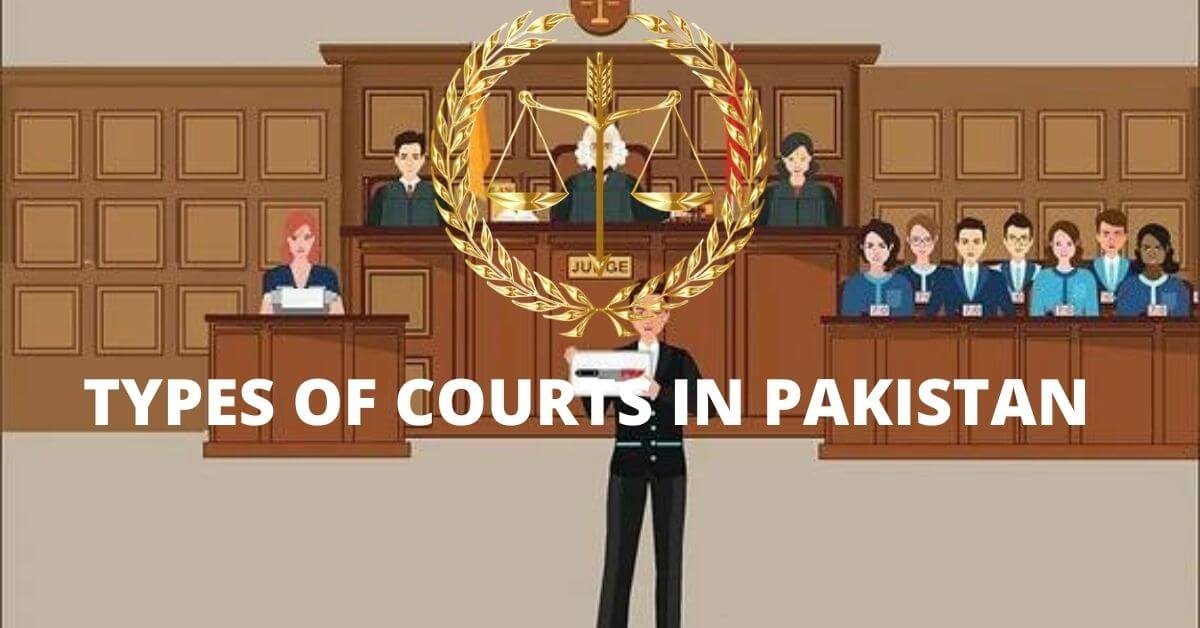There are two types of Courts in Pakistan the superior (or higher) courts and subordinate (or lower) courts. The superior courts are composed of the Supreme court of Pakistan, the Federal Shariat Court, and the Five High Court. There is a high court for a Province as well as the High Court for the Islamabad capital. Types of courts in Pakistan are discussed briefly. For other detail visit Lawguide.pk.
To Become a Judge In Pakistan a complete procedure
Superior Courts
Superior Court of Pakistan
In 1956 supreme courts were established. It is the highest type of court in Pakistan. Supreme court consist of a Chief justice and sixteen other judges. Supreme court permanent seats are in Islamabad and other branches of the supreme court are in Lahore, Karachi, Peshawar, and Quetta. The Chief justice of Pakistan has the power of the SUO moto to try the human rights matter. Supreme Judicial Council supervised Supreme court Judges.
Federal Shariat court
Federal Shariat Court was established in 1980 to view all Laws of Pakistan to confirm that any Law of Pakistan can not be against the Quran and Sunnah. If any Law is found against the Quran and Sunnah then the government specifies the reason for its decision. The decision of the courts is binding on higher courts.
The Federal Shariat Court in Pakistan consists of eight Muslim judges appointed by the president of Pakistan. These judges’ services are for three years as their extensions are given by the president of Pakistan.
High Courts of Pakistan
There are five high courts in Pakistan one for the capital of Islamabad in Pakistan and four other provinces for Courts in Pakistan. All the high courts have their other high court benches in the province. A high court is the principal court of the province and the largest court of the Province.
Lahore High Court, Lahore, Punjab
Sindh High Court, Karachi, Sindh
Kpk High Court, Peshawar, kPK
Balochistan High Court, Quetta, Balochistan
Islamabad High Court, Islamabad, ICT
Subordinate Courts of Pakistan
Family courts
Family Courts are specially for family matters. The Family courts Resolve the issues of the families such as adoption, taking of the children into care and residence of children and child protection, etc such types of cases are handled by the family courts.
District courts
Every province has a district court and has criminal and civil jurisdiction governed by CPC 1908 and Crpc for criminal cases. District and secession Judges is the Administrative Head of the district judiciary.
The province high courts’ decisions are applicable and binding on the province’s Lower courts.
civil judge cum judicial magistrates courts
Civil magistrate courts are present in every city. Judicial magistrates can award all punishment except capital punishment under section 30 Code of Criminal Procedure.
Special Tribunals Court in Pakistan
Foreign Exchange Appellate Board
consumer courts
Intellectual Property Tribunal
Control of narcotic substance (Special Court)
Boars of Revenue
Special Magistrate Courts
Environment Courts
Labour Appellate Tribunal
Labour Courts
Anti-Terrorism Courts
Anti-Corruption Courts
Income tax Tribunals
Provincial service Tribunals (one for a Province)
Federal service Tribunals
Drugs Courts
Criminal Courts
Custom Courts
Banking Courts
juvenile court
Juvenile justice system act 2018 was passed by the parliament. this law is applicable to all of Pakistan. Provincial Government by section 4 of the just authorized to establish one or more juveniles for local areas in the chief Justice high court consultation.
